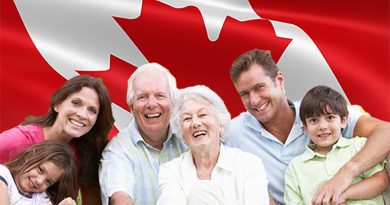Economic & Family Classes Pilot Extended to 2023: Facilitating the PR Applications of Certain Family Members
This group was selected in order to address the most vulnerable populations impacted by the sponsorship bar, while minimizing program integrity risk. The program integrity risk is reduced by the fact that these family members would not have been subject to the Immigration and Refugee Protection Act (the Act) provisions on excessive demand on health or social services and in most cases they would not have been subject to any income requirements. These family members would have had limited impact on the success of the sponsors application.
The public policy does not allow the sponsorship of family members who, based on their relationship to their sponsor, would have made that person ineligible to immigrate to Canada in the program under which they applied.
Proceeding with a two-year pilot project will allow the Department to monitor and assess the number of cases, the types of situations that come forward, and to ensure no significant issues arise.
As such, I hereby establish that, pursuant to my authority under section 25.2 of the Act, there are public policy considerations that justify the granting of an exemption from the application of paragraph 117(9)(d) or 125(1)(d) of the Regulations to foreign nationals who meet the conditions (eligibility requirements) listed below.
Conditions (Eligibility Requirements)
Based on public policy considerations, delegated officers may grant an exemption from the provisions of the Act listed below to a foreign national who meet all of the following conditions (eligibility requirements):
- The foreign national has applied as a spouse or a common-law partner in the Spouse or Common-Law Partner in Canada class or as a spouse, a common-law partner or a dependent child in the Family Class;
- The foreign national has a sponsor who:
- Applied for, and was granted permanent residence status as a Convention refugee or a person in similar circumstances; or,
- Was granted permanent residence after having been determined to be a protected person; or,
- Was determined to be a member of the Family Class, and was granted permanent residence as a sponsored spouse, common-law partner, conjugal partner, or dependent child; or,
- Was determined to be a member of the Spouse or Common-Law Partner in Canada Class and was granted permanent residence as a sponsored spouse or common-law partner.
- The foreign national, if declared and examined at the time their sponsor immigrated to Canada, would not have made their sponsor ineligible in the class that the sponsor applied for.
Provisions of the Regulations for which an exemption may be granted:
- Paragraph 117(9)(d) – A foreign national shall not be considered a member of the family class by virtue of their relationship to a sponsor if the sponsor previously made an application for permanent residence and became a permanent resident and, at the time of that application, the foreign national was a non-accompanying family member of the sponsor and was not examined.
- Paragraph 125(1)(d) of the Regulations – A foreign national shall not be considered a member of the spouse or common-law partner in Canada class by virtue of their relationship to a sponsor if the sponsor previously made an application for permanent residence and became a permanent resident and, at the time of that application, the foreign national was a non-accompanying family member of the sponsor and was not examined.
All admissibility provisions and other eligibility requirements not exempted above are applicable.
Fees: Where applicable, the standard fees for processing applications in the Family Class or the Spouse or Common-law Partner in Canada Class must be paid.
Dependent children have to meet the definition of a dependent child, as set out in section 2 of the Regulations, at the time their application for permanent residence is received by the Department.
For the applicants whose sponsor resides in the province of Quebec, the requirement to have a sponsor who has given a sponsorship undertaking to the Government of Quebec continues to apply.
Start Date and End Date: This public policy takes effect on September 9, 2019, and ends on September 9, 2021. The public policy applies to the following: applications that were pending on May 31, 2019; applications received between May 31, 2019 and September 9, 2021; and, applications that were pending reconsideration between May 31, 2019 and September 9, 2021.
As with all public policies, this public policy may be cancelled at any time.
Signed
Ahmed Hussen
Minister of Immigration, Refugees and Citizenship
Dated at Ottawa, July 5, 2019





